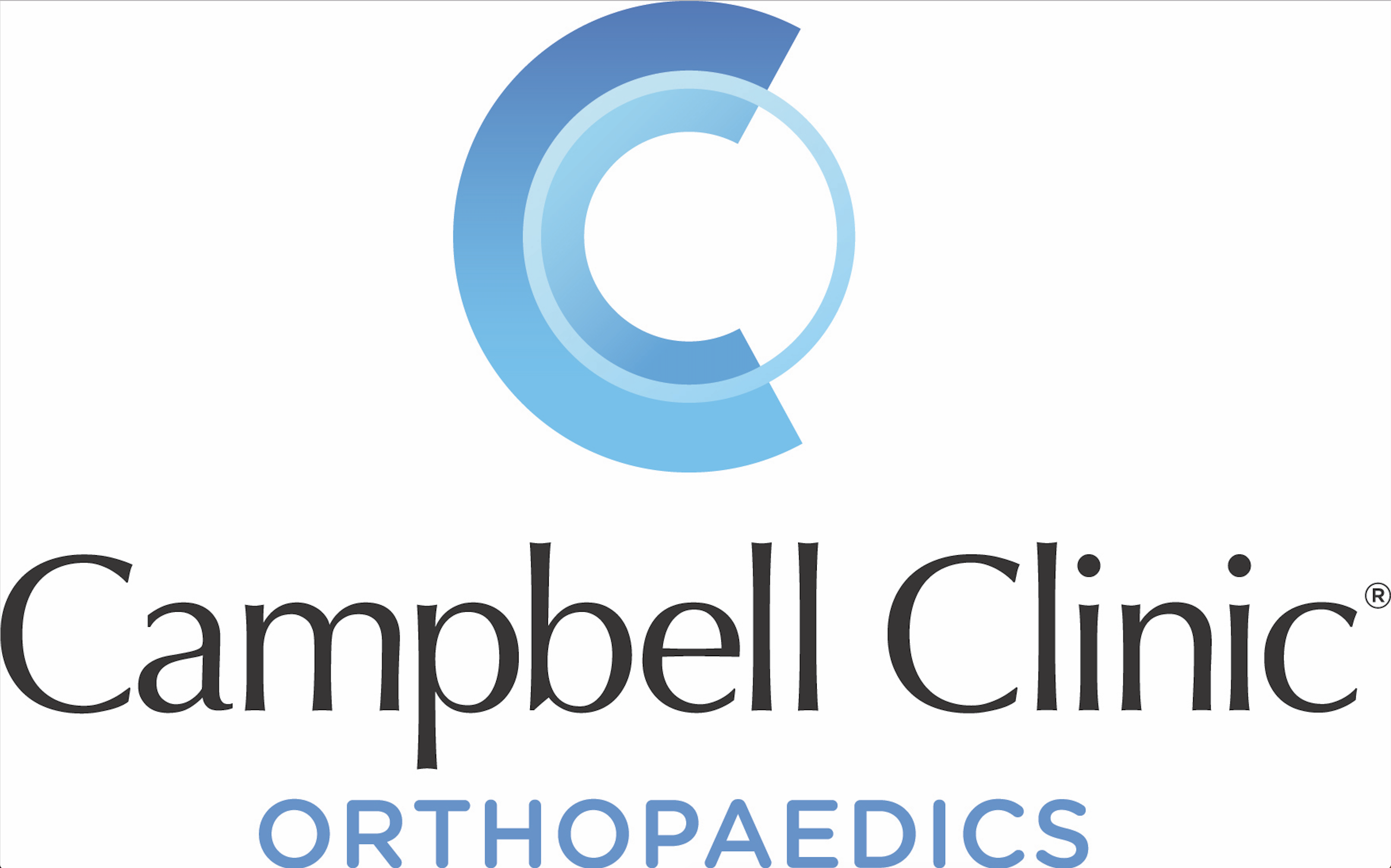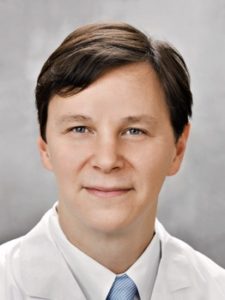

About Patrick C. Toy, M.D.
In 2013, Dr. Toy began performing direct anterior total hip replacement surgery at the Campbell Surgery Center. This procedure allows some patients to undergo hip replacement in an outpatient setting, and for those with limited prior conditions and who are not significantly overweight, it can be a successful alternative. Similar to the traditional posterior approach, patients undergoing this procedure often begin walking the day of their surgery.
Dr. Toy has treated patients from all over the country in his eight years at Campbell Clinic, most notably for joint replacements. With Memphis growing as a health care mecca thanks to facilities like St. Jude Children’s Research Hospital, Le Bonheur Children’s Hospital, West Cancer Center and the University of Tennessee Health Science Center, patients often look to Campbell Clinic when considering orthopedic procedures, and Dr. Toy when it comes to hip replacements.
More information can be found on outpatient procedures at Campbell Clinic here.
About Campbell Clinic Orthopaedics:
Since its founding in 1909, Memphis-based Campbell Clinic has provided unsurpassed patient care while being recognized as the leader in teaching and research in orthopaedic surgery. As one of the world’s premier practicing and teaching orthopaedic centers, they dedicate themselves completely to the advancement of orthopaedic techniques in order to better serve their patients.
For more information about Campbell Clinic, please call (901) 759-3100 or visit www.campbellclinic.com.
Medical Travel Today (MTT): Give the readers some background on your professional experience and how you got involved with Campbell Clinic Orthopaedics.
Patrick Toy (PT): I joined the Campbell Clinic staff as an orthopaedic surgeon in 2009 after completing a fellowship at The University of Florida. Prior to that, I obtained my medical degree at The University of Tennessee Health Science Center in Memphis, Tennessee, in 2003 and finished a residency through the UT-Campbell Clinic program in 2008. My areas of specialty include total joint replacement surgery – both hips and knees – as well as sports medicine and orthopaedic oncology.
MTT: Could you provide our readers with some background information about your company?
PT: Founded in 1909, Campbell Clinic has been an innovator in the field of orthopaedic surgery for more than a century. My group, which operates five locations in the Memphis market, employs 48 physicians and more than 500 employees. Campbell Clinic is a full-service orthopaedic practice, which specializes in total joint replacement, sports medicine and the treatment of all musculoskeletal injuries and diseases. We treat patients from birth to late in life, and own and manage two ambulatory surgery centers and two urgent care after-hours clinics.
MTT: Tell me where you are and what your focus is – is it direct to consumers? Is it business to business? How are you operating?
PT: We are based in Memphis, and while most of our patients come from within a 150-mile radius of the Mid-South, we frequently serve patients who come from outside the market to receive specialized orthopaedic care. Our business relies both on consumer-driven marketing, as well as reaching out to our robust referral community of primary care, family practice and pediatric physicians in our region.
Total joint replacement surgery has emerged as a high-demand orthopaedic procedure, thanks to the large number of baby boomer patients, who are now in their 50s, 60s and 70s.
During total joint replacement, an orthopaedic surgeon removes and replaces damaged natural components with artificial ones to eliminate bone-on-bone friction and improve range of motion. Common concerns voiced by many of my patients is that they worry they’ll have to spend several days or weeks in the hospital, and that they will not be able to return to any level of physical activity after surgery.
There’s good news, though. Surgery can now be performed on an outpatient basis for some patients, and most athletes can return to low-impact, moderate fitness activities if they take the recommended precautions.
As recently as a decade ago, patients undergoing joint replacement in the inpatient hospital setting would check in a day or two before surgery and spend nearly a week in the hospital after having their joint replaced. Advances in care have shortened that average length of stay so that many patients can now go home the day of surgery.
For local patients, this means they can sleep in their own bed that night after receiving a new hip or knee. For patients who travel to Memphis and engage in medical tourism, they can arrange for a stay at a local hotel and typically will travel with a family member or friend who can care for them for a few days until they’re ready to return home.
MTT: Are your services available nationwide? What regions does your model serve?
PT: An advantage of modern healthcare is that so much information is available to patients through the internet. Patients are more informed than ever before, and they come to our practice equipped with information that makes the entire process much faster. Patients know their options, and they can access information to help them make an educated decision on how, when and where they should receive care. While most patients are local, digital marketing combined with resources on the web enable us to attract patients from outside our market, even though our practice only operates its business in the Memphis MSA.
MTT: What fees are associated with this type of service?
PT: While costs are all relative to patients depending on a variety of factors, including whether the patient is filing the surgery through insurance or paying cash out of pocket, the overall cost of outpatient surgery is much lower than completing a similar procedure in the hospital setting. This is a result of lower overhead in the ambulatory surgery center (ASC). Physician-operated ASCs enable procedures to be completed faster, more cost-effectively and, often, with improved outcomes because of lower risks of complication such as deep-tissue infections.
MTT: How does this model support the emergence of breakthrough treatments and technologies in healthcare?
PT: Medical tourism enables specialized procedures like outpatient total joint replacement, which are not offered by all providers in every market across the country, to become accessible to a mobilized and informed patient population. For some patients, it’s worth the slight additional travel expense to not have to spend several days or weeks in a hospital or rehab facility. In fact, even including travel and a brief hotel stay after surgery, same-day outpatient orthopaedic procedures often require equal or less time for the patient than having the same surgery in a hospital closer to home. Time is money, and patients who can arrange travel and care away from home often find outpatient orthopaedic surgery to be a more efficient and convenient option.
MTT: Do patients make their own travel arrangements?
PT: Patients typically make their own arrangements regarding air or land travel to our facility. We can certainly assist with arranging their stay once they arrive, and our two surgery centers are conveniently located near both economy and high-end hotels, as well as a major international airport and interstates, which stretch the length and width of the country. Memphis is a highly accessible city. We can also work with patients to arrange a car service, if necessary, to get to and from our clinic when they arrive in Memphis, as well as point them in the direction of things to do in the city.
MTT: What changes do you expect to see in the future of the medical tourism industry?
PT: Medical tourism is going to continue to grow. As cash-based services become more en vogue, patients will seek providers that not only offer affordable services, but also providers with exceptional reputations and outcomes for care. Patients have choices, and they care about a value proposition that combines quality with affordability and access, even if that means seeking specialized medical care through travel out of their region.
MTT: How long is your treatment program, and what is your rate of success? Do you have any recidivism?
PT: We have exceptionally high patient satisfaction scores in both of our surgery centers, and our rate of complication is well below the national average. All major surgery carries some risk, and patients should understand that going into a total joint surgery on the front end, but procedures in the ASC setting typically carry a minimal risk of infection or readmission.
MTT: What sets Campbell Clinic treatment apart from others?
PT: We are one of only a few centers in the U.S. that offer same-day, outpatient joint replacement. Our physicians offer total hip, total knee, partial knee, total shoulder/reverse shoulder and ankle replacement on a same-day basis for patients who qualify for these procedures and have no additional, extenuating health problems.
MTT: Do families typically have those kinds of funds to put toward this? Is it covered by any insurance?
PT: Most orthopaedic services are covered by insurance. As with any other procedure or plan, patients would be responsible for their annual deductible if one applies to their plan and it has not been previously met. Some patients elect to pay cash out of pocket.
MTT: How many patients do you typically treat in a year?
PT: Campbell Clinic, as a practice, sees more than 180,000 patients per year. Several hundred patients elected to receive outpatient joint replacement in 2016.
MTT: Where do you see the industry going, from your perspective?
PT: As more and more surgeons develop protocols to move eligible cases into the outpatient setting, this is going to become a more popular and accessible option for patients.